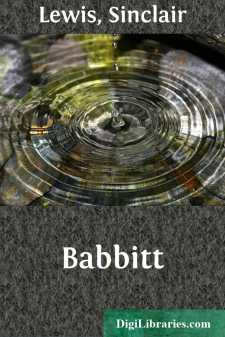Categories
- Antiques & Collectibles 13
- Architecture 36
- Art 48
- Bibles 22
- Biography & Autobiography 813
- Body, Mind & Spirit 142
- Business & Economics 28
- Children's Books 17
- Children's Fiction 14
- Computers 4
- Cooking 94
- Crafts & Hobbies 4
- Drama 346
- Education 46
- Family & Relationships 57
- Fiction 11829
- Games 19
- Gardening 17
- Health & Fitness 34
- History 1377
- House & Home 1
- Humor 147
- Juvenile Fiction 1873
- Juvenile Nonfiction 202
- Language Arts & Disciplines 88
- Law 16
- Literary Collections 686
- Literary Criticism 179
- Mathematics 13
- Medical 41
- Music 40
- Nature 179
- Non-Classifiable 1768
- Performing Arts 7
- Periodicals 1453
- Philosophy 64
- Photography 2
- Poetry 896
- Political Science 203
- Psychology 42
- Reference 154
- Religion 513
- Science 126
- Self-Help 84
- Social Science 81
- Sports & Recreation 34
- Study Aids 3
- Technology & Engineering 59
- Transportation 23
- Travel 463
- True Crime 29
The Job An American Novel
by: Sinclair Lewis
Description:
Excerpt
CHAPTER I
CAPTAIN LEW GOLDEN would have saved any foreign observer a great deal of trouble in studying America. He was an almost perfect type of the petty small-town middle-class lawyer. He lived in Panama, Pennsylvania. He had never been “captain” of anything except the Crescent Volunteer Fire Company, but he owned the title because he collected rents, wrote insurance, and meddled with lawsuits.
He carried a quite visible mustache-comb and wore a collar, but no tie. On warm days he appeared on the street in his shirt-sleeves, and discussed the comparative temperatures of the past thirty years with Doctor Smith and the Mansion House ’bus-driver. He never used the word “beauty” except in reference to a setter dog—beauty of words or music, of faith or rebellion, did not exist for him. He rather fancied large, ambitious, banal, red-and-gold sunsets, but he merely glanced at them as he straggled home, and remarked that they were “nice.” He believed that all Parisians, artists, millionaires, and socialists were immoral. His entire system of theology was comprised in the Bible, which he never read, and the Methodist Church, which he rarely attended; and he desired no system of economics beyond the current platform of the Republican party. He was aimlessly industrious, crotchety but kind, and almost quixotically honest.
He believed that “Panama, Pennsylvania, was good enough for anybody.”
This last opinion was not shared by his wife, nor by his daughter Una.
Mrs. Golden was one of the women who aspire just enough to be vaguely discontented; not enough to make them toil at the acquisition of understanding and knowledge. She had floated into a comfortable semi-belief in a semi-Christian Science, and she read novels with a conviction that she would have been a romantic person “if she hadn’t married Mr. Golden—not but what he’s a fine man and very bright and all, but he hasn’t got much imagination or any, well, romance!”
She wrote poetry about spring and neighborhood births, and Captain Golden admired it so actively that he read it aloud to callers. She attended all the meetings of the Panama Study Club, and desired to learn French, though she never went beyond borrowing a French grammar from the Episcopalian rector and learning one conjugation. But in the pioneer suffrage movement she took no part—she didn’t “think it was quite ladylike.” ... She was a poor cook, and her house always smelled stuffy, but she liked to have flowers about. She was pretty of face, frail of body, genuinely gracious of manner. She really did like people, liked to give cookies to the neighborhood boys, and—if you weren’t impatient with her slackness—you found her a wistful and touching figure in her slight youthfulness and in the ambition to be a romantic personage, a Marie Antoinette or a Mrs. Grover Cleveland, which ambition she still retained at fifty-five.
She was, in appearance, the ideal wife and mother—sympathetic, forgiving, bright-lipped as a May morning....








